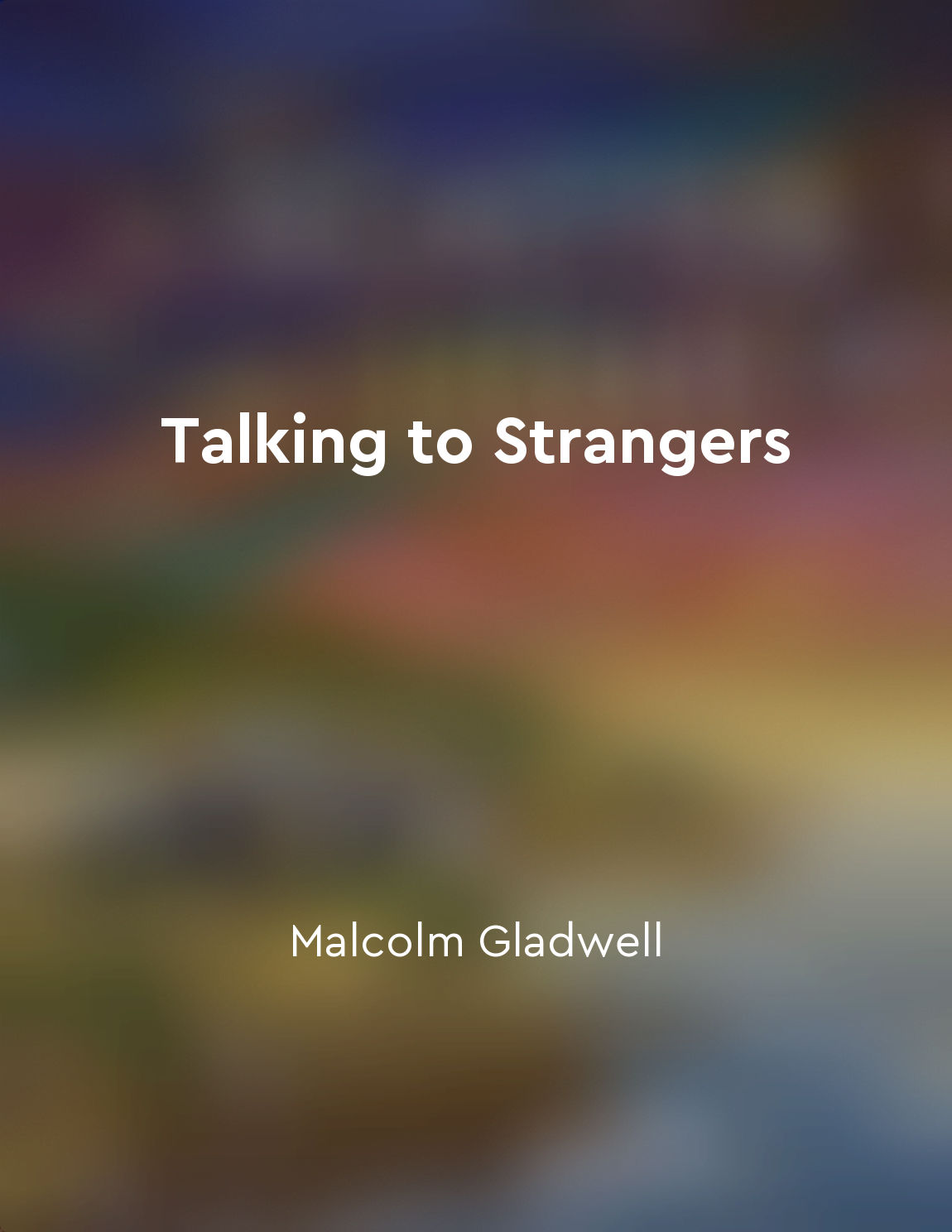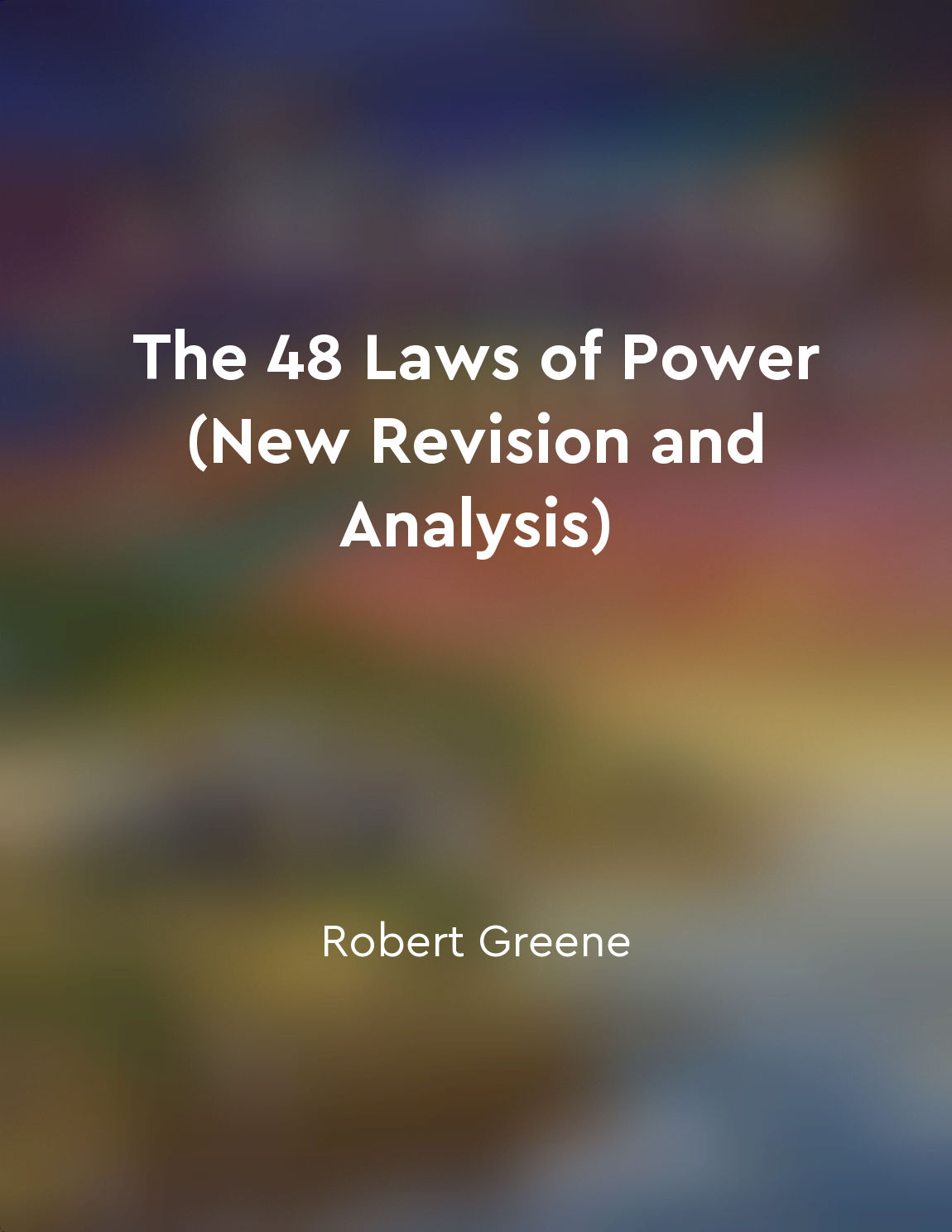Power can lead to positive or negative outcomes from "summary" of The Power Paradox by Dacher Keltner
The concept of power is a complex and multifaceted one, with the potential to shape both individuals and societies in profound ways. While power can be a force for positive change, empowering individuals to achieve their goals and make a difference in the world, it can also have negative consequences, leading to corruption, abuse, and harm. This duality of power is at the heart of the power paradox, the idea that power can lead to both positive and negative outcomes depending on how it is wielded. One of the key insights of the power paradox is that power is not just a personal attribute, but a dynamic social force that emerges from relationships between individuals. This relational view of power challenges the traditional notion of power as a fixed and stable resource that individuals possess, suggesting instead that power is a fluid and shifting influence that is constantly being negotiated and contested. The implications of this relational view of power are profound, suggesting that power is not a zero-sum game where one person's gain is necessarily another person's loss. Instead, power can be a positive-sum game where everyone benefits when power is used in ways that promote cooperation, compassion, and social good. By recognizing the relational nature of power, individuals can work together to create a more just and equitable society where power is shared and distributed in ways that benefit everyone. At the same time, the power paradox also highlights the dangers of unchecked power, which can lead to arrogance, selfishness, and exploitation. When individuals become disconnected from others and lose sight of the relational nature of power, they are more likely to abuse their power and prioritize their own interests at the expense of others. This can have devastating consequences, leading to social inequality, injustice, and conflict.- Individuals must cultivate humility, empathy, and a sense of social responsibility. By recognizing the relational nature of power and working to build relationships based on trust, respect, and collaboration, individuals can use their power in ways that benefit not only themselves but also their communities and society as a whole. Ultimately, the power paradox reminds us that power is a double-edged sword that can cut both ways, challenging us to wield our power wisely and ethically in order to create a more just and equitable world.
Similar Posts
Use absence to increase respect and honor
The key to gaining respect and honor lies in knowing when to withdraw. By removing yourself from the public eye, you create a s...
Law 23: Concentrate your forces
Law 23 advises us to concentrate our forces, directing all our energy and resources towards a single goal. This law is based on...

Nonverbal cues play a significant role in our interactions with strangers
Humans have an innate ability to pick up on nonverbal cues, which can influence how we perceive and interact with strangers. Th...

Embrace change
Change is a force that cannot be stopped. It is a constant in life, always present and always in motion. Those who resist chang...
Framing situations influences perceptions
The way we present a situation can greatly impact how it is perceived by others. By framing a situation in a certain light, we ...
Mirrors expose our vulnerabilities
Mirrors do not lie. They reflect our true selves, revealing our vulnerabilities for all to see. When we gaze into a mirror, we ...
Building movements requires inspiring and empowering others
To build movements that have the power to effect real change, one must be able to inspire and empower others. This is not a tas...

Emotional intelligence
Emotional intelligence is a crucial aspect of human behavior that involves recognizing, understanding, and managing one's own e...
Power dynamics can affect individuals on both a micro and macro level
Power dynamics have a pervasive influence that can be felt at both the individual and societal levels. Power plays a crucial ro...
Power is a natural human impulse
Power is a natural human impulse that is deeply rooted in our evolutionary history. From the dawn of time, humans have been dri...

